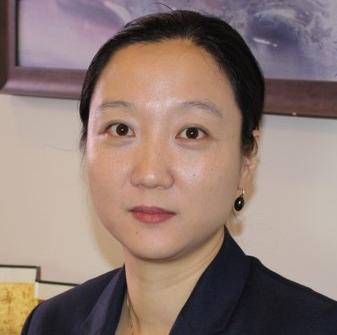The International Criminal Court has seen its relationship with Africa drop to the lowest point in recent years. It has been increasingly criticized and rejected by African countries for the arrogance it had demonstrated “in disregard” of these countries’ sovereignty and dignity in its trials of certain African state leaders. Most of the defendants put on trial by the ICC in recent years were leaders of African countries. Since its establishment in 2002, the ICC has handled eight cases, seven of which were targeted at former leaders of African countries. Though 34 of them are signatories to the Rome Statute, African countries now regard the ICC as “having deviated from its original purpose” and metamorphosed into a political organ exercising “double standards” and “only targeting African countries for case investigation and conviction.”

The latest African anger against ICC flared up during the 25th African Union (AU) summit held in Johannesburg, South Africa, in June when the ICC asked the South African government to arrest Sudanese President Omar Hassan Ahmed al-Bashir, against whom the court had issued arrest warrants twice in 2009 and 2010. The ICC’s request was met with vehement disparagement from African countries, including Sudan, South Africa and AU. Bashir was not only able to enter and leave South Africa unscathed but was also hailed as having “pioneered the African continent’s rejection of the international court’s unjust decisions.” AU Committee Chairwoman Nkosazana Dlamini Zuma denounced the ICC’s act of issuing the arrest warrant during the AU summit as a “rude attempt to override the AU.” AU’s rotating chairman, Zimbabwe President Robert Mugabe, angrily criticized ICC for “overreaching its hands” and urged African leaders to quit the ICC.
The “quit” remark may have just been said to vent some anger and isn’t likely to happen any time soon, but it reflected African countries’ long-standing grudges against ICC and their intent to set up a regional judicial system on their own. China and the United States have demonstrated different attitudes towards the ICC’s judicial engagement in Africa, which mirrors the different values and considerations on which they base their respective policies on Africa.
By the end of March 2015, 123 countries have officially signed the Rome Statute to become ICC signatories. Although both China and the US – both being permanent members of the UN Security Council – are currently outside the ICC, they hold different stances on the international judicial body.
China didn’t join the organization because it has its reservations about certain clauses of the Rome Statute with regard to their interpretation, for instance the definition of “universal jurisdiction” and “prosecutor’s investigations proprio motu”. Despite the difference, China has closely followed the ICC’s moves and development and holds an open attitude towards it. It does not preclude the possibility of joining the international body. As a country that has been invaded by Western powers repeatedly after 1840 and suffering Western hostility since 1949, China, like African countries, treasures and is particularly sensitive about state sovereignty including judicial sovereignty, and it does not endorse the concept of “human rights above sovereignty.”
In the strained relations between ICC and Africa, China supports the latter’s assertions. For instance, when the AU summit passed a resolution in May 2013 asking ICC to hand over the case of Kenya’s newly elected president, Mr. Uhuru Kenyatta, to a domestic court of the country, China’s foreign ministry expressed the hope that the international community respects the Kenyan people’s will and that the ICC takes serious heed of the AU and African countries’ opinions. On November 15 the same year, the UN Security Council, urged by the AU, voted on a resolution to postpone the trial of the Kenyan leader. China voted for it, though the measure finally failed to pass, with seven votes for, zero against and eight abstentions.
The US’ passive attitude towards ICC stems from the ambivalence it has towards a balance between the ICC concepts and its own national interests, values and self-protection under the theory of “American exceptionalism”. On the one hand, Washington, out of its need to carry out its global strategy, protect its national interests and popularize the values of “human rights above sovereignty”, wants and expects ICC to build up authority in trying cases of genocide and crimes against humanity. On the other hand, it requests ICC to grant all Americans “judicial immunity” based on the theory of “American exceptionalism”. In other words, the ICC authority would only apply to non-Americans. The US launched two wars, against Afghanistan and Iraq, during George W. Bush’s tenure as American president, and Washington’s attitude towards the ICC was ostensibly confrontational.
Though it hates to be fettered by ICC rules, the US hopes to affect and control the organization through the UN Security Council. When disputes arose between the ICC and Africa, Western – especially American – media often blamed the latter, citing the high-sounding slogans of “judicial fairness” and “letting justice be done”. They said African countries should respect and carry out the ICC’s convictions, since all the cases handled by the court had been filed by signatory countries themselves or transferred by the United Nations. That is a hypocritical statement as the US keeps itself outside the Rome Statute. Washington’s appeal for “judicial fairness” is not convincing.
When they signed the Rome Statute, African countries were also dreaming for “judicial fairness and justice,” hoping to, by using the international judicial force, curb corruption, autocracy and even despotism exercised by certain African leaders. However, they became doubtful about this kind of “judicial fairness” when the ICC ignored their state sovereignty and dignity in issuing of subpoenas and trying of cases and when the “fair” conviction was made with no regard of the possible disaster it might cause to the implicated country and region.
If the ICC is to improve its relationship with Africa and resume its authority, it will need to strike a balance between “safeguarding judicial fairness and justice” and “respecting Africa’s sovereignty and dignity” and “ensuring peace and stability in Africa” in its court hearing, decision making and law enforcement.



